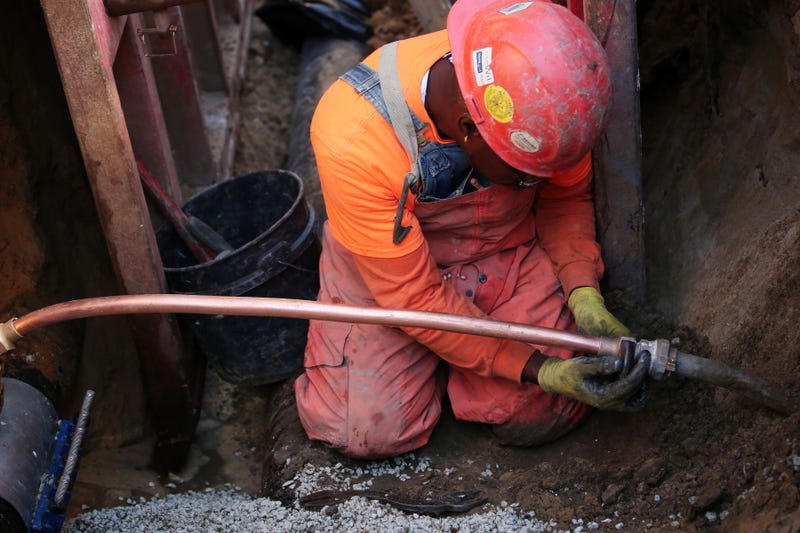
(WBBM NEWSRADIO) - Chicago, along with the rest of the country, has been given a mandate to make sure drinking water has a safer passage to homes.
The EPA has issued a ten-year deadline for cities to replace lead service lines, but because Chicago has more lead service pipes than any other City (about 400,000), the city is getting twenty years.
President Biden announced the final Environmental Protection Agency rule during a visit to the swing state of Wisconsin in the final month of a tight presidential campaign. The announcement highlights an issue — safe drinking water — that Kamala Harris has prioritized as vice president and during her presidential campaign. The new rule supplants a looser standard set by former President Donald Trump's administration that did not include a universal requirement to replace lead pipes.
Decades after the dangers of lead pipes were clear, more than 9 million lead pipes remain in use, a fact Biden called shameful.
“We’re finally addressing an issue that should’ve been addressed a long time ago in this country,'' he said. “We are showing up as a partner to get it done.”
The new EPA rule is the strongest overhaul of lead-in-water standards in roughly three decades. Lead, a heavy metal used in pipes, paints, ammunition and many other products, is a neurotoxin that can cause a range of disorders from behavioral problems to brain damage.
The EPA estimates the stricter standard will prevent up to 900,000 infants from having low birth weight and avoid up to 1,500 premature deaths a year from heart disease.
Valerie Baron with the Natural Resources Defense Council spoke to WBBM about the dangers of lead pipes.
“I wouldn’t give my kids drinking water that came through lead pipes, and no other parent in the country should be forced to do that. You’re looking at loss of IQ points, you’re looking at cardiovascular health issues potentially, an increase in all-cause mortality. It’s not good stuff,” Baron said.
Emily Kowalski is with Environment Illinois and said this is a good development, but more must be done.
“One thing that the EPA did not do that we at Environment Illinois have been calling for is addressing an additional problem of lead contamination, specifically in schools, where I kids go to learn and play. We still have work to do there,” Kowalski argued.
Chicago has already begun work on replacing the lead service pipes. The project will cost about $8 billion.
The Associated Press contributed to this report.
Listen to WBBM Newsradio now on Audacy!
Sign up and follow WBBM Newsradio
Facebook | Twitter | Instagram | TikTok
